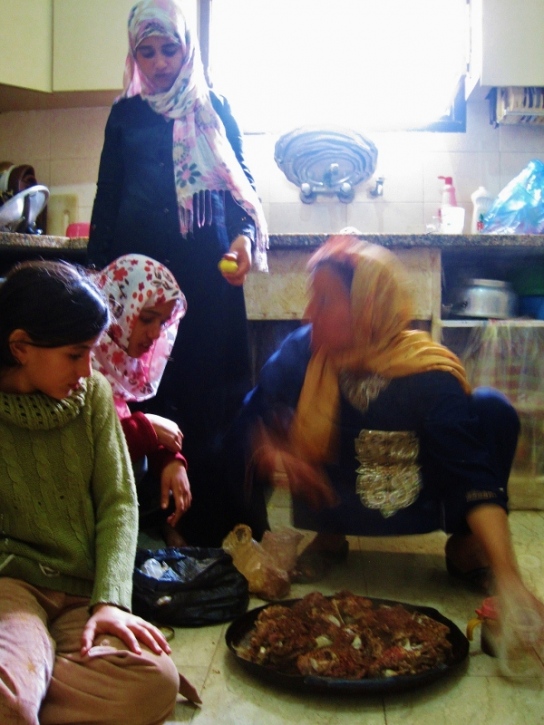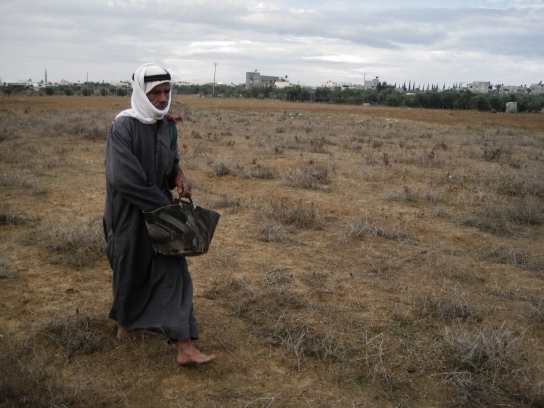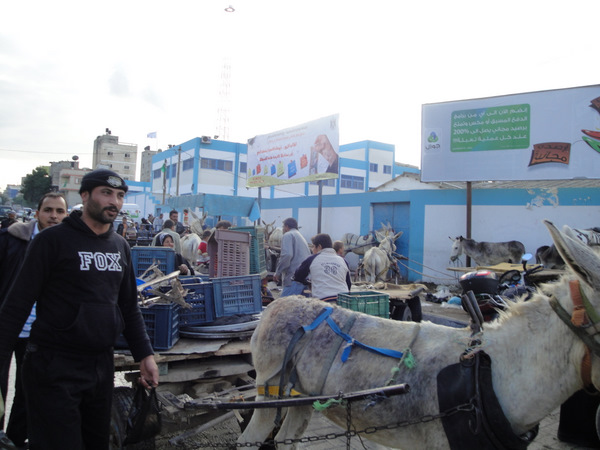Category: Journals
-
Thanksgiving in Gaza
by Radhika Sainath 25 November 2011 | Notes from Behind the Blockade It all started with a simple question from Jabar, a Palestinian farmer from Faraheen, during Eid al-Adha, the festival of sacrifice. “Is there an American eid (holiday) where you slaughter an animal?” he asked Nathan, a colleague here in Gaza, a few weeks…
-
Sowing wheat in Israel’s kill zone
by Radhika Sainath 22 November 2011 | Notes from Behind the Blockade One need not be an agronomist to know that its been a long time since the farmers of Khuza’a, Gaza have tended to their land near the border. When we arrived on Friday, the densely packed soil formed small hills with alien, ridged,…
-
Bittersweet Eid
by Lydia de Leeuw 19 November 2011 | A Second Glance Last week Eid al Adha was celebrated in Gaza and other Muslim communities worldwide. Eid al Adha is one of the most important holidays in Islam, marking the end of the Haj (annual pilgrimage to Mecca) season and symbolizing sacrifices for Allah as well…



